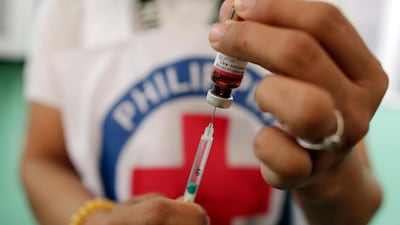One of the many things I admire about scientists was summed up by an eminent doctor I met a few years ago. “You have to understand,” he said, “that all science is propelled by ignorance.”
What he meant was that the scientific mind recognises the boundaries of knowledge and then tries to push further into subjects that the scientist does not know about or cannot understand, in order to find answers.
Some politicians and business people are successful for exactly the opposite reason. They portray themselves as people who know everything about everything, with 100 per cent confidence. Science – thankfully – is not like that.
Scientists will just say that the evidence points to a particular conclusion, or that experiments show that something is likely to work as a cure for an illness. A good example is my doctor. A few years ago I suffered from flu and a chest infection and went to see him.
“I have flu and a chest infection,” I said.
“Yes, you do have a chest infection,” he replied. “And flu-like symptoms.”
It might have been flu, he was telling me. Or it might not. But it was undeniably flu-like. Very precise, while taking nothing for granted.
This precision came to mind in the current measles outbreaks in the United States. This situation has become so serious that a Brooklyn judge has agreed with New York City health officials that children must be vaccinated, despite a lawsuit from some parents arguing that the city has no right to order vaccination.
Judge Lawrence Knipel ruled that “a fireman need not obtain the informed consent of the owner before extinguishing a house fire. Vaccination is known to extinguish the fire of contagion.”
He is right. But many parents in the US and Europe have fallen prey to a series of myths about measles and vaccinations, putting both their own children and other people's at risk of one of the nastiest childhood diseases.
Measles can be caught at any age, but more commonly manifests itself in children. It is highly contagious and caused by a virus. The symptoms typically last for more than a week and include fevers, coughs, sore eyes, runny nose, spots on the skin and sometimes in the mouth. In serious cases it can cause ear infections, pneumonia and blindness.
In 1980, 2.6 million people, mainly in African and Asian countries, died from the disease. More recently, measles appeared to have been largely eradicated in wealthier countries. Even so, the European Centre for Disease Prevention and Control reported that “between 2005 and 2013 there were 24 deaths in Bulgaria, 17 in Romania, 10 in France, four in Italy and three each in the UK and Germany".
Since 1980, the measles, mumps and rubella (MMR) vaccine has become widely available. Developed nations began to offer the jab to children routinely, and scientists talked about the potential to rid the world of measles, much as had been achieved previously with smallpox.
In the US, where two of my children were vaccinated, the Centres for Disease Control recommendation is that all children get two doses, the first at a year old, and the second between the ages of four and six. It is said to be 97% effective, and it is voluntary. Or at least it has been.
The problem with voluntary vaccination programmes is that, to be truly successful, nearly everyone in a target population has to be immunised. But following numerous scare stories about MMR, many parents have panicked and refused to have their children inoculated.
Those stories began, in large part, with a now-discredited English doctor named Andrew Wakefield, who falsely claimed that the vaccination caused autism. Some people extolled the virtues of homeopathic treatments –
basically attempting to treat or prevent genuine medical conditions with water. Other myths suggested that exposure to the virus was in some way a good thing. It isn’t. Or that measles is not a serious disease. It is. For anyone worried by all this, it is worth checking on the European Centre for Disease Prevention and Control website.
In 2018 there were 72 deaths from measles across Europe, according to the Oxford Vaccine Group. Worldwide figures from 2017 show global measles deaths rose by more than 20 per cent to 110,000 – more than 300 deaths a day. The reason was “gaps in vaccination coverage.”
Judge Knipel's ruling, therefore, is correct. If your neighbour's house is on fire and threatens the whole street, and if that neighbour is daft enough to be happy to watch his house burn down, the authorities should ignore his wishes and put the flames out.
Researchers and doctors, because of their admirable rigour, are prone to explaining that they can never be 100 per cent certain about anything. But 97 per cent effective – which MMR vaccination is – is good enough for science, and for Judge Knipel’s court. It should be good enough for parents too.
Gavin Esler is a journalist, television presenter and author


